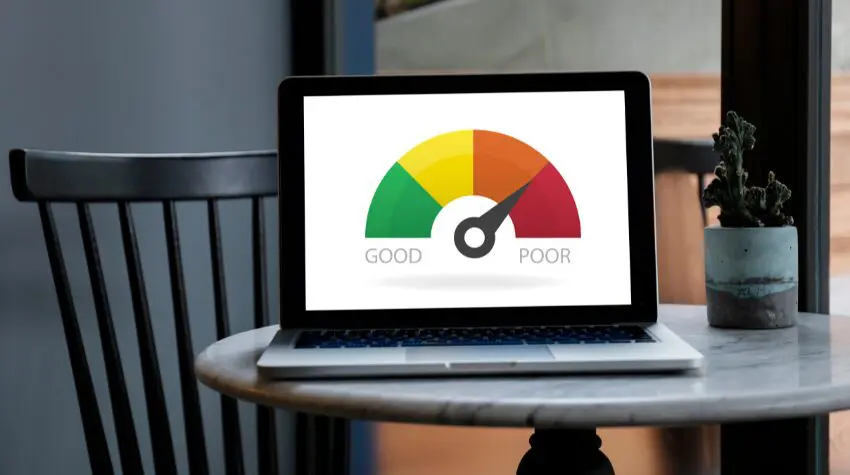
Owning a home is a significant milestone for many Canadians, but having poor credit can make obtaining a mortgage seem like a daunting challenge. While traditional lenders may hesitate to approve your application, there are strategies and steps you can take to increase your chances of success.
This guide will walk you through how to get approved for a mortgage with poor credit, along with actionable advice to improve your financial standing and secure a home loan.
Understanding Credit Scores and Their Impact on Mortgages
In Canada, credit scores range from 300 to 900. A score below 600 is generally considered poor, which can make securing a mortgage from traditional lenders like banks more difficult. These lenders often view applicants with poor credit as higher-risk borrowers due to a history of missed payments, high debt levels, or other financial challenges.
However, having poor credit doesn’t mean you’re entirely out of options. Alternative lenders, private mortgage investors, and Mortgage Brokers specialize in helping individuals with less-than-perfect credit achieve homeownership.
Tips to Get Approved for a Mortgage with Poor Credit
- Work with a Mortgage Broker
Mortgage Brokers are professionals who have access to a wide range of lenders, including those who cater to individuals with poor credit. A Broker can assess your financial situation, recommend suitable lenders, and negotiate terms on your behalf. In Ontario, working with a Broker can significantly improve your chances of approval, as they have established relationships with alternative and private lenders who understand your unique needs.
- Consider Alternative Lenders
Unlike traditional banks, alternative lenders often place less emphasis on credit scores and focus more on your income, assets, and the property’s value. These lenders typically charge higher interest rates to compensate for the increased risk, but they offer a valuable path to homeownership for individuals with poor credit.
- Save for a Larger Down Payment
A larger down payment reduces the lender’s risk, making them more likely to approve your mortgage application. In Ontario, the minimum down payment for homes under $500,000 is 5%, but if your credit is poor, consider saving 20% or more. This not only increases your approval chances but also reduces the need for mortgage insurance.
- Provide a Strong Cosigner
If you have a trusted family member or friend with good credit and stable income, they can act as a cosigner on your mortgage. A cosigner essentially guarantees the loan, giving lenders added confidence in approving your application. However, this is a significant commitment for the cosigner, as they are equally responsible for the debt.
- Demonstrate Stable Income and Employment
Lenders want assurance that you can afford your monthly mortgage payments. Providing proof of steady income through pay stubs, employment letters, or tax returns can help offset concerns about your credit score. If you’re self-employed, be prepared to present detailed financial records, including your business income and expenses.
- Use a Secured Mortgage
A secured mortgage, also known as a collateral mortgage, uses an asset such as equity in another property as collateral. This reduces the lender’s risk, increasing your chances of approval even with poor credit. However, this option requires that you already own a valuable asset.
Steps to Improve Your Credit Score
While you can work with lenders who accommodate poor credit, improving your credit score over time will expand your mortgage options and reduce your borrowing costs. Here are actionable steps you can take:
- Review Your Credit Report
Start by obtaining your credit report from one of Canada’s major credit bureaus, Equifax or TransUnion. Check for errors or inaccuracies that may be negatively impacting your score, such as incorrect account balances or unrecognized accounts. Dispute any inaccuracies directly with the credit bureau to have them corrected.
- Pay Down Existing Debt
High levels of debt relative to your income, known as your debt-to-income (DTI) ratio, can hurt your credit score and mortgage approval chances. Focus on paying off high-interest debts, such as credit card balances, to lower your DTI ratio and improve your financial profile.
- Make On-Time Payments
Payment history accounts for a significant portion of your credit score. Ensure all bills, including credit cards, loans, and utilities, are paid on time. Setting up automatic payments or reminders can help you stay consistent.
- Avoid New Credit Applications
Each time you apply for credit, it generates a hard inquiry on your credit report, which can temporarily lower your score. Avoid applying for new credit cards or loans in the months leading up to your mortgage application.
- Build Positive Credit History
If you lack a credit history or have a poor one, consider using a secured credit card to rebuild your credit. With a secured credit card, you provide a deposit that serves as your credit limit, reducing the lender’s risk. Use the card responsibly by keeping balances low and paying off the full amount each month.
- Keep Old Credit Accounts Open
The length of your credit history also impacts your score. Even if you no longer use an older credit card, keeping the account open can help maintain a longer credit history and positively influence your score.
Navigating the Mortgage Application Process
When applying for a mortgage with poor credit, preparation is key. Here’s how to approach the process:
- Assess Your Budget
Understand how much you can afford to spend on a home. Factor in monthly mortgage payments, property taxes, utility bills, and maintenance costs. Use an online mortgage calculator to estimate your costs based on current interest rates and your desired home price.
- Gather Necessary Documentation
Prepare all required documents, including proof of income, employment, tax returns, and a list of assets and liabilities. Having these ready demonstrates your financial responsibility to potential lenders.
- Get Pre-Approved
A mortgage pre-approval provides an estimate of how much you can borrow and at what interest rate. While not a guarantee, it shows sellers you’re a serious buyer and gives you a clearer picture of your budget.
- Be Honest with Your Lender
Transparency is crucial. Be upfront about your financial situation, including past credit issues. Lenders are more likely to work with you if they understand the full picture and see your efforts to improve.
- Compare Lenders
Not all lenders are created equal, especially when it comes to borrowers with poor credit. Compare multiple lenders to find one that offers favorable terms and rates for your situation. A Mortgage Broker can be invaluable in this process.
Final Thoughts
Securing a mortgage with poor credit is challenging, but it’s far from impossible. By exploring alternative lenders, saving for a larger down payment, and working with a knowledgeable Mortgage Broker, you can improve your chances of approval. At the same time, take steps to rebuild your credit score for long-term financial health.
If you’re ready to take the next step toward homeownership, UCC Mortgage Co. is here to help. With extensive experience in the mortgage industry and a commitment to personalized service, our team specializes in finding solutions for borrowers with unique financial situations. Contact UCC Mortgage Co. today to discuss your options and let us guide you toward achieving your homeownership goals. Together, we can make your dream of owning a home a reality.








